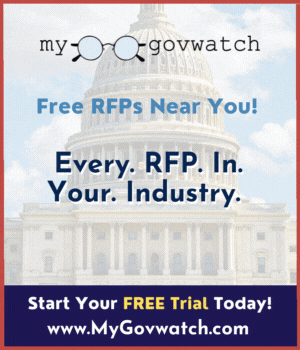Expanding the Adoption of Workplace Mental Health Approaches
Notice of Intent to Sole Source
Pursuant to the authority of FAR 12.106-1(b)(1)(i), the Contracting Officer may solicit from one source if the Contracting Officer determines that the circumstances of the contract action deem only one source is reasonably available. The Department of Health and Human Services (DHHS), Program Support Center (PSC), Substance Abuse and Mental Health Services (SAMHSA) Center for Mental Health Services (CMHS) intends to sole source to:
Policy Research Associates, Inc. (PRA)
345 Delaware Avenue
Delmar, NY 12054-1905
In May 2017, SAMHSA procured work for a literature review and to convene an expert panel of employers to review the literature and explore practices used to promote mental health in the workplace. This work was performed superbly by Policy Research Associates (PRA), Inc. The literature review detailed the emotional wellness and mental health practices of major employers from varying industries and of various sizes from across the United States. The data, collected in March and April 2017, highlighted employee emotional wellness and mental health programs made available to employees, how benefits of these programs are measured, and how cost effectiveness is determined for the employer. This previous work makes PRA the most knowledgeable offeror in this arena to perform the follow on work proposed by this new purchase order. This new purchase order aims to build on the completed work from the literature review.
This purchase order also aims to capitalize on the expressed willingness of all expert panel participants to continue the work of developing evidence-based best practices that could be shared and broadly adopted by American employers. PRA has the unique ability to assemble these expert panelists again as they have already done the work of developing the necessary relationship with panelists and worked closely with the experts to gather their insight on the literature review and other products. They have also created a unique buy-in with regard to creating products that incorporate the insight of the experts and have approval from all expert panelists. In conclusion, PRA is expertly positioned to perform this high priority work. Their staff is well qualified to provide the measure of expertise, independence, objectivity, and audience acceptance necessary to meet the program requirements.
Workplace wellness is an increasingly popular concern, particularly with the passage of the Affordable Care Act (ACA), which folded worksite wellness programs into a larger national public health strategy designed to address the rates of chronic disease in the United States (Anderko et al., 2012). With the attention paid to addressing the increases in chronic diseases of American workers, workplace wellness programs have historically focused on physical health outcomes. These programs attempted to improve employees' physical health by offering flu shots and health screenings, promoting healthy eating, and offering incentives for exercise, for example. While issues regarding high blood pressure, diabetes, and pain are indeed concerns of employers and staff, a 2015 study on wellness trends found anxiety and depression are also among the top ten health problems navigated in the workplace (ComPsych Corporation). Perhaps for this reason, workplace wellness programs are increasingly focusing on whole health, holistic well-being, and emotional wellness rather than maintaining a primary focus on physical health
There are now a variety of programs and practices used by employers to positively impact the emotional wellness and mental health of the workforce and their families. Similarly, governments, employers, academics, and non-governmental institutions measure emotional wellness and mental health of a workforce in several ways. Unfortunately, there is limited information available about the measurements used to assess economic value of these efforts. Although the data regarding the economic benefit of emotional wellness programs is limited, there is an abundance of information available about the programs and practices used by employers to positively impact the emotional wellness and mental health of their workforce. Programs are being implemented to address the rise of employee mental health concerns by both large and small employers alike (Peacock, 2017); and they include practices like stress management, mental health counseling, mindfulness activities, and relaxation programs, among others. Research indicates that providing a range of different wellness activities and initiatives increases participation in these programs (Tooma & Beech, 2016).
Specific activities will be organized according to the following tasks:
1. Project planning.
2. Determine Best Practices for Inclusion In the Toolkit.
3. Create the Draft Toolkit.
4. Develop dissemination support materials.
This is not a solicitation for competitive proposal. No solicitation document is available. All responsible sources that have determined that they can provide the same services may submit product information and a capabilities statement addressing their specific abilities regarding this requirement. The email subject line must reference SAM201087. All responses are due by September 5, 2017 at 8:00 AM Eastern Time and can be sent to Haig.Altunian@psc.hhs.gov. A determination by the government not to compete this proposed contract based upon responses to this notice is solely with in the discretion of the government.
Haig Altunian, Email haig.altunian@psc.hhs.gov



